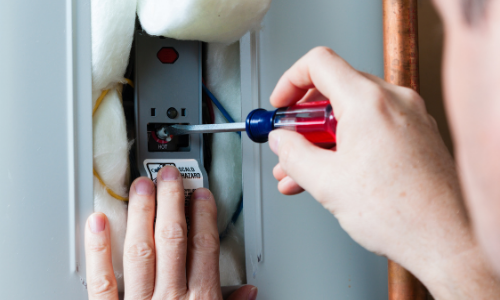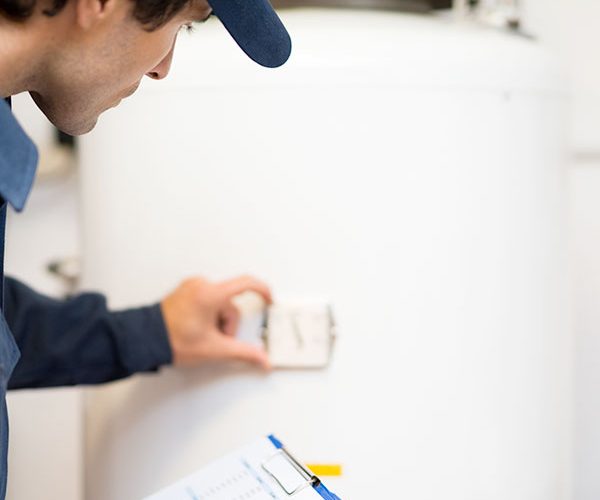Addressing the Most Frequent Hot Water Heater Emergencies
Addressing the Most Frequent Hot Water Heater Emergencies
Blog Article
Are you currently looking for additional info concerning The Importance of Water Heater Maintenance?

A hot water heater is just one of the most essential basic devices that can be discovered in a house. With water heaters, you do not require to experience the anxiety of heating water by hand whenever there is a need to wash, wash, or the dishes. There is constantly an opportunity that your water heater would act up as with the majority of mechanical devices.
It is important to keep in mind any type of little breakdown and tackle it swiftly prior to points get out of hand. A lot of times, your water heater begins to malfunction when there is a build-up of debris as a result of constant use. As a preventative measure, periodic flushing of your water heater is recommended to avoid sediment build-up as well as avoid useful failure.
Typical water heater emergency situations and exactly how to manage them
Dripping hot water heater tank.
A dripping tank could be an indicator of corrosion. It could create damage to the flooring, wall and electrical devices around it. You could even be at risk of having your house flooded. In this situation, you should shut off your water heater, enable it to cool down, and carefully look for the source of the trouble. Sometimes, all you need to do is to tighten up a couple of screws or pipe links in cases of minor leakages. If this doesn't work and the leak persists, you may need to employ the services of a specialist for an appropriate substitute.
Changing water temperature.
Your water heater might start generating water of different temperature levels generally ice scalding or chilly hot. In this scenario, the first thing you do is to make certain that the temperature is readied to the preferred level. If after doing this, the water temperature keeps changing throughout showers or various other activities, you might have a malfunctioning thermostat. There could be a requirement to replace either the home heating or the thermostat unit of your hot water heater.
Insufficient warm water
Handling a not enough supply of warm water can be discouraging. It may be that the water heater can't support the hot water need for your apartment. To handle this issue, you can try to adjust your heating system's temperature dial and also wait for a few mins. You can ask for the aid of a professional plumber if the issue continues. Alternatively, you could update your water heater to one with a bigger capability.
Stained or smelly water
When this takes place, you require to recognize if the problem is from the storage tank or the water resource. You are particular that it is your water heating system that is faulty if there is no funny odor when you run cold water. The odiferous water can be brought on by rust or the build-up of microorganisms or sediments in the hot water heater container. As soon as you notice this, you can try flushing out your tank or changing the anode if the issue lingers. The feature of the anode is to clean microorganisms from your container. Because the anode pole substitute needs a detailed expertise of your water furnace, you will certainly need the help of an expert.
Verdict
Some property owners neglect little caution and also minor faults in their hot water heater unit. This only results in additional damage and also a feasible full breakdown of your appliance. You should deal with your water heater faults as quickly as they come near prevent more expenses and unnecessary emergency problems.
With water heating systems, you don't need to go via the stress of home heating water by hand every time there is a need to take a bath, do the laundry, or the dishes. Your water heater could start producing water of different temperatures typically ice chilly or scalding warm. It might be that the water heating unit can't support the hot water need for your apartment. If there is no amusing scent when you run chilly water, then you are certain that it is your water heater that is malfunctioning. The smelly water can be caused by rust or the accumulation of bacteria or sediments in the water heater container.
Why Is My Water Heater Leaking?
When a water heater bursts in a home, it is a shocking event, not to mention a messy one, and it could potentially cause a lot of expensive damage. If your hot water heater burst, you’re probably wondering why this happens and what to do next.
In general, the basic reason why hot water heaters burst is that there is corrosion within the tank, which can lead to the tank bursting at its seams. Unfortunately, there are several possible underlying causes that can contribute to water heater explosions, and it’s not always apparent which one is the culprit.
Sometimes there are risk factors or warning signs that could indicate a water heater explosion is imminent, but not always. In order to understand the risk factors that could contribute to a water heater exploding, it’s important first to understand the type of water heater that you have in your home.
What Are The Common Causes of Water Heater Leaks?
In general, it's a good idea to call a emergency plumbing company if you have any questions about the cause of your water heater leak. The most frequent reasons why water heaters leak are:
Drain valve
The drain valve is used to empty the tank during maintenance visits and replacements by plumbers and homeowners. The drain valve is also utilized by homeowners when cleaning the tank is required. Over time, the valve becomes loose, allowing water to flow through. Leaks from the bottom of the valve, on the other hand, suggest that the component isn't waterproof. This situation calls for the installation of a new drain valve. Homeowners may replace this themselves, but it's better to get advice from a professional plumber before you do so.
Too much pressure
Water heaters are affected by naturally occurring water pressure, just like any other plumbing component. The hot water that generates steam and fills the vacant space causes pressure in water heaters. When the steam has no where to go, the pressure becomes too high. Any crack in the heater allows water to escape, relieving some of the pressure. When the water temperature is set too high or when water enters the system at large pressures, the heater's pressure rises.

Do you appreciate reading up on Common Hot Water Heater Problems? Try leaving a review down below. We'd be interested to find out your opinions about this entry. In hopes to see you back again later on. Remember to take a moment to distribute this blog entry if you appreciated it. Thank you so much for taking the time to read it.
Services Report this page